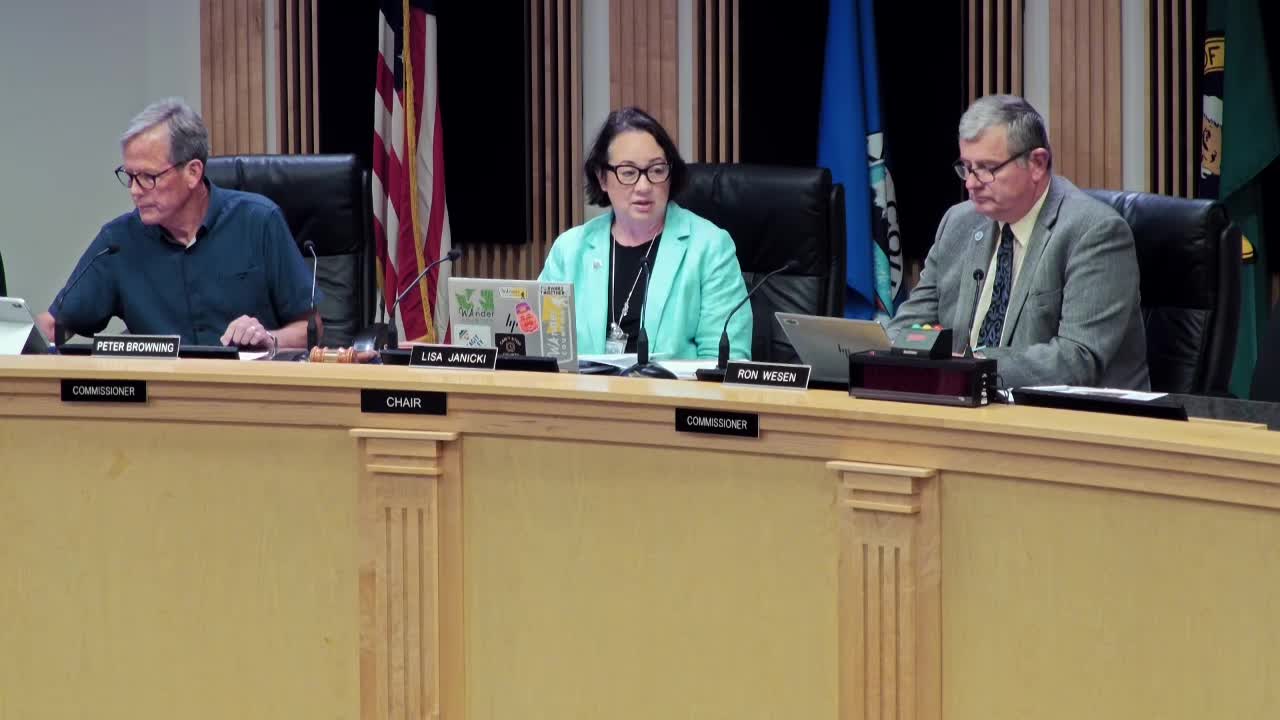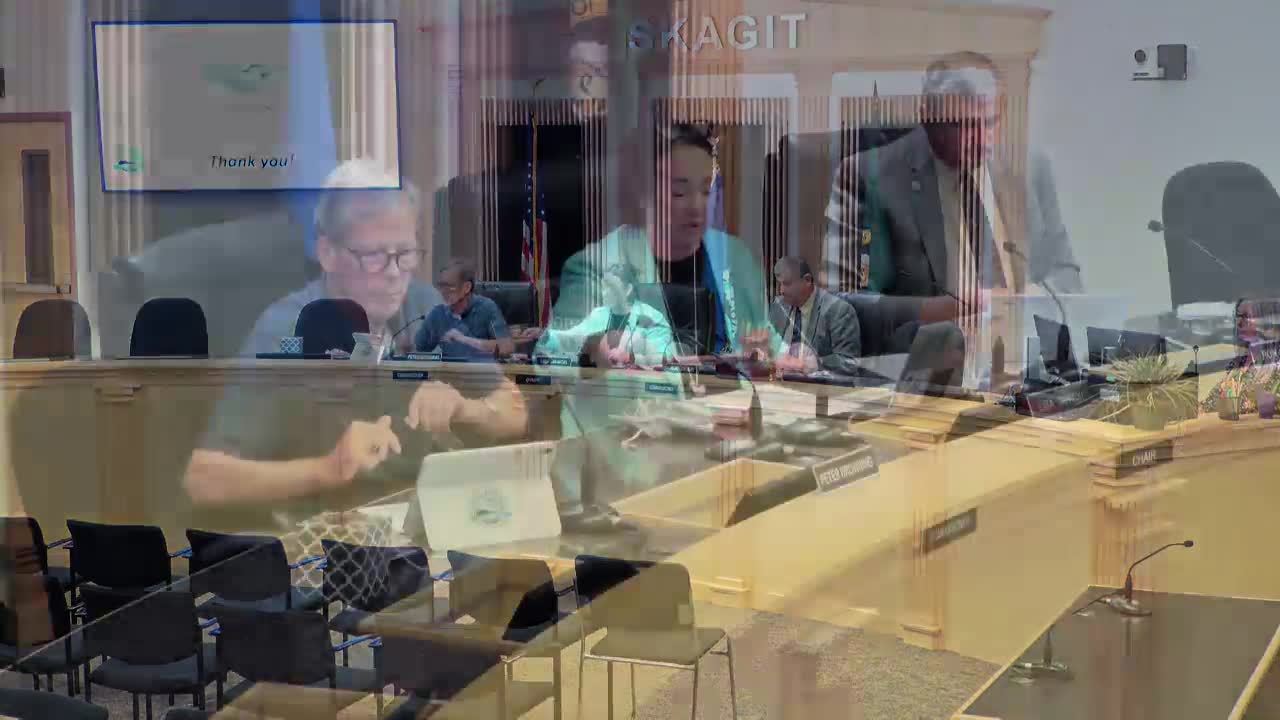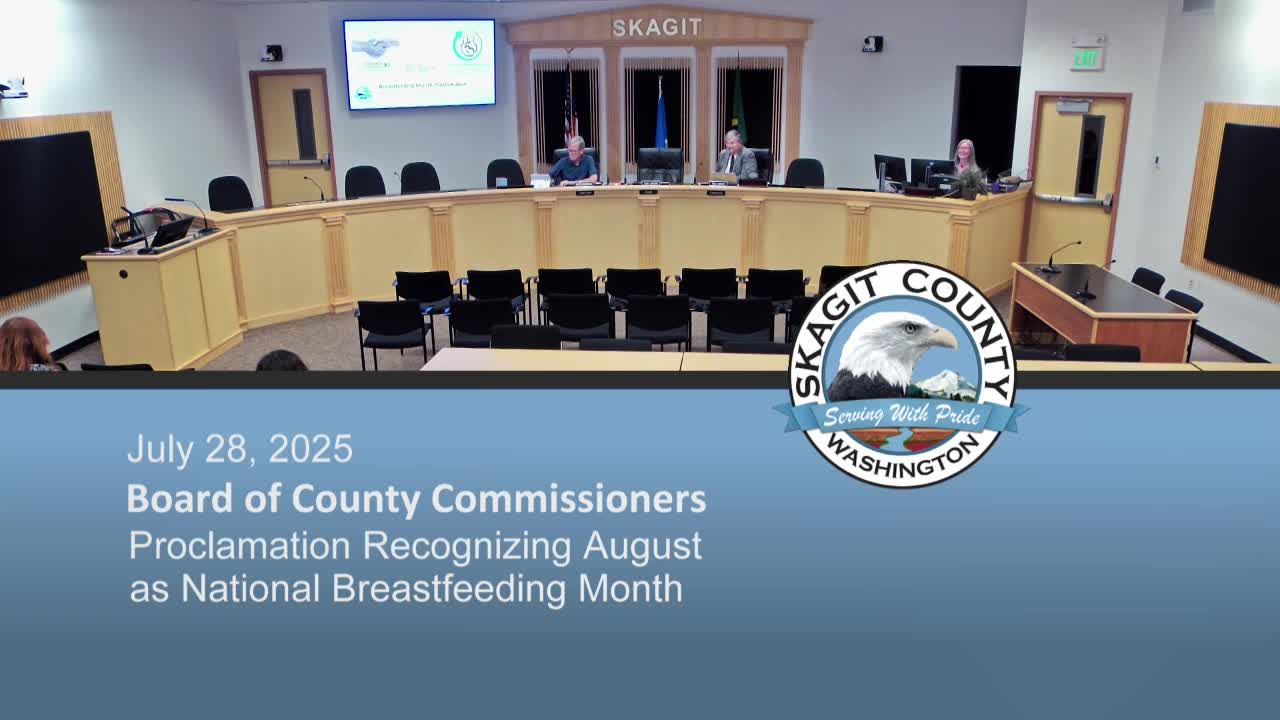Article not found
This article is no longer available. But don't worry—we've gathered other articles that discuss the same topic.

Skagit County holds public hearing on 2025 Critical Areas Ordinance update; decision set for Aug. 4

Commissioners approve consent agenda including housing and public‑health contracts; recusals recorded

